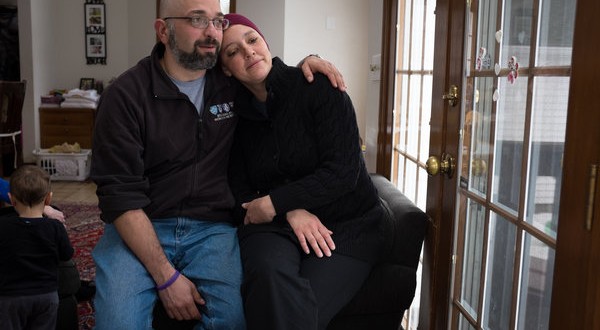The Food and Drug Administration is warning women that a surgical procedure used to eliminate growths in the uterus could inadvertently spread cancer to other parts of the body.
The agency is discouraging doctors from performing the procedure, which uses an electronic device to grind and shred uterine tissue so it can be removed through a small incision in the abdomen. Known as laparoscopic power morcellation, the technique is widely used to treat painful fibroids, either by removing the noncancerous growths themselves or the entire uterus.
Uterine fibroids are non-cancerous growths that originate from the smooth muscle tissue in the wall of the uterus. According to the National Institutes of Health, most women will develop uterine fibroids at some point in their lives. While most uterine fibroids do not cause problems, they can cause symptoms, such as heavy or prolonged menstrual bleeding, pelvic pressure or pain, and frequent urination, sometimes requiring medical or surgical therapy.
Based on an analysis of currently available data, the FDA has determined that approximately 1 in 350 women who are undergoing hysterectomy or myomectomy for fibroids have an unsuspected type of uterine cancer called uterine sarcoma. If laparoscopic power morcellation is performed in these women, there is a risk that the procedure will spread the cancerous tissue within the abdomen and pelvis, significantly worsening the patient’s likelihood of long-term survival.
“The FDA’s primary concern as we consider the continued use of these devices is the safety and well-being of patients,” said William Maisel, M.D., M.P.H., deputy director for science and chief scientist at the FDA’s Center for Devices and Radiological Health. “There is no reliable way to determine if a uterine fibroid is cancerous prior to removal. Patients should know that the FDA is discouraging the use of laparoscopic power morcellation for hysterectomy or myomectomy, and they should discuss the risks and benefits of the available treatment options with their health care professionals.”
A number of additional treatment options are available for women with symptomatic uterine fibroids, including traditional surgical hysterectomy (performed either vaginally or abdominally) and myomectomy, and laparoscopic hysterectomy and myomectomy without morcellation, as well as other non-surgical options.
The FDA will convene a public meeting of the Obstetrics and Gynecological Medical Devices Panel to discuss information related to laparoscopic power morcellation.
“Input from clinical and scientific experts will help provide valuable information and perspectives to clarify the proper clinical role for these devices,” said Maisel. “We anticipate the discussion will include whether a boxed warning related to the risk of cancer spread should be added to the product labeling for laparoscopic power morcellators to ensure patients and health care professionals are adequately informed of the risks.”
In the interim, the agency has instructed manufacturers of power morcellators used during laparoscopic hysterectomy and myomectomy to review their current product labeling for accurate risk information for patients and health care professionals.
Based on currently available information, the FDA’s recommendations for health care professionals include:
- Discuss all the options available to treat your condition, including the risks and benefits of each with your health care professional.
- If laparoscopic hysterectomy or myomectomy is recommended, ask your health care professional if power morcellation will be performed during your procedure and why it is the best treatment option for you.
- If you have already undergone a hysterectomy or myomectomy for fibroids, tissue removed during the procedure is typically tested for the presence of cancer. If you were informed these tests were normal and you have no symptoms, routine follow-up with your physician is recommended. Patients with persistent or recurrent symptoms or questions should consult their health care professional.
Agencies/Canadajournal
 Canada Journal – News of the World Articles and videos to bring you the biggest Canadian news stories from across the country every day
Canada Journal – News of the World Articles and videos to bring you the biggest Canadian news stories from across the country every day



